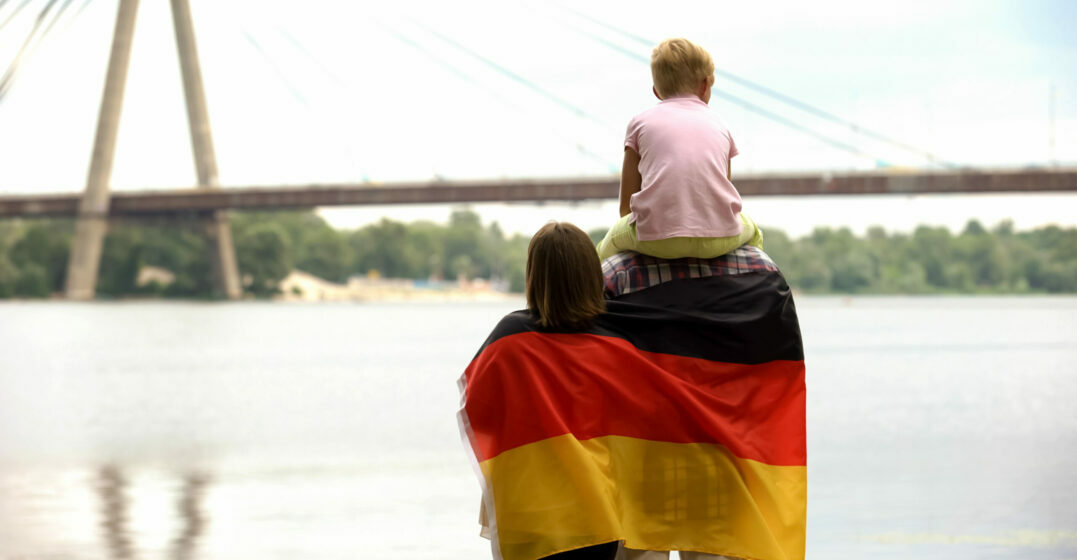by Erin McGann
Updated on October 16, 2024
You’ve moved to Germany, and you’ve even organised your permanent residency – now you’re ready to become a full German citizen. In this post we’ve answered your most common questions about how to apply for German citizenship, so get ready to arrange your documents in your plastic folders!.
After you have lived in Germany for eight straight years with a residency permit (this must be permanent residency when you apply, a student residency permit is not enough), you can apply to naturalise as a German citizen. Your German language level must be at least B1, and you will have to pass the Life in Germany test if you haven’t already. If you took part in an integration course, you can apply after only seven years living in the country. You need to be able to demonstrate you can support yourself and your family financially, and that you have never been convicted of a crime either in Germany or abroad. As part of becoming a citizen of Germany, you must also give up other nationalities, unless you’re a citizen of another EU country or Switzerland, though there are some exceptions to this rule if one of your parents is a German national. Spouses or same-sex legal partners can apply for German citizenship along with their partners after two years of marriage and three years living in Germany.
If one of your parents is a German national, you can apply for German citizenship as well, but the language requirements still apply. Generally, you would also have to give up any other non-EU/Swiss nationality as well, but there are exceptions to this rule, so check with your local immigration office. The rules have changed for naturalisation by ancestry over the years so it will depend on when you were born which rules apply to you, and the German Embassy in the US has a good overview. There are some expanded naturalisation options if your ancestors lost their German citizenship due to National Socialist persecution, including children born up until 1999.
Becoming a citizen means you will be able to vote in all elections and have a say in how the country you live in is governed. You will also no longer have to renew your residency permit, hooray for less paperwork! If you weren’t already an EU national, you will now have the ability to live and work in any of the EU countries.
You need to have completed your B1 German and provide accredited test results. These language requirements are the minimum, however, so if you’ve achieved a higher level this also counts. The language requirements are considered part of your social integration, so you can take part meaningfully in German society as a new citizen.
This is a thorny question. If you are naturalising as a German citizen, generally you are expected to give up any other nationality. However, there are cases where it is possible to retain your previous citizenship, particularly if you have family that are German nationals. If you hold citizenship in another EU country or Switzerland, though, you can get German citizenship without giving up your other nationality. Generally citizens of the US, Canada, and Australia, for instance, would be expected to give up those nationalities if they don’t have immediate family members that are German nationals.
If you have not taken the naturalisation test (Einbürgerungstest), you should do this first. You don’t need to have started the naturalisation process before you book your test, and there is a €25 processing charge. Some states consider passing the Life in Germany test as fulfilling your German citizenship test requirement, but not all, so contact your local immigration office to check and book. Once you have the results of your test and have collected up a valid identification document like a passport, a biometric photo (any of the PhotoMe booths in German train stations can do these), your residency documentation, and proof of your health and other insurances, you can submit your application. Do check your Bundesland’s (federal state) requirements for the application, they are not all the same.
You can email the office responsible in your Bundesland if you have any questions about the exact documents and proof they require. Once you’ve had all your documents accepted, you will get a temporary naturalisation document that you need to use to renounce any other citizenships you may hold, if necessary. When you can prove this has been processed, you will get your official record of naturalisation, and you go on to apply for your German identity card and passport. The entire naturalisation process costs €255 for adults, and €51 for minors. It’s worth noting that the passport and other identification documents are a separate process with their own fees and waiting times.
Once you’ve figured out which path to citizenship you’re taking and pull all your documents together in the traditional clear plastic folder, make sure your German language skills are up to scratch. If you need to get ready for your B1 exam, Lingoda online classes are super flexible to book and taught by trained native-level teachers. You can start any level at any time and fit it around your schedule.
